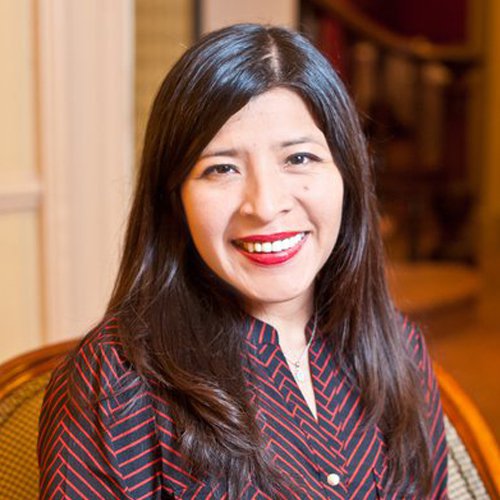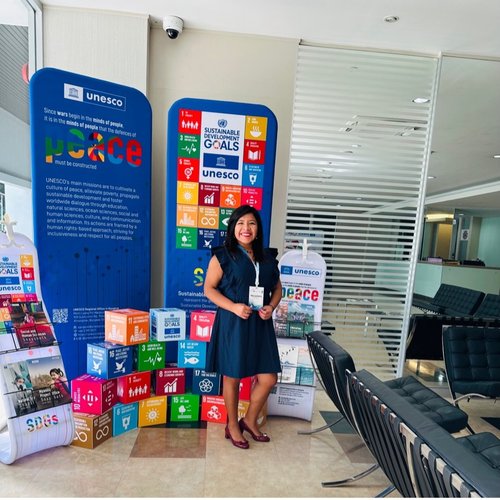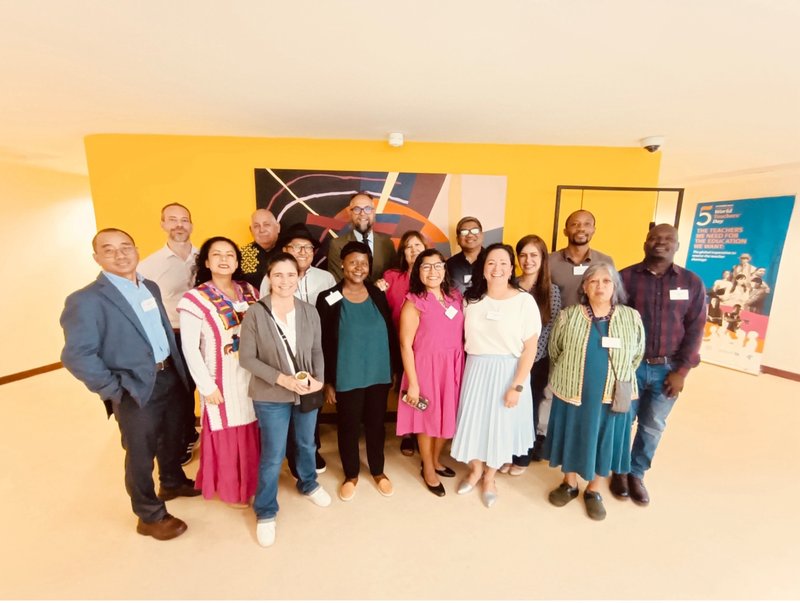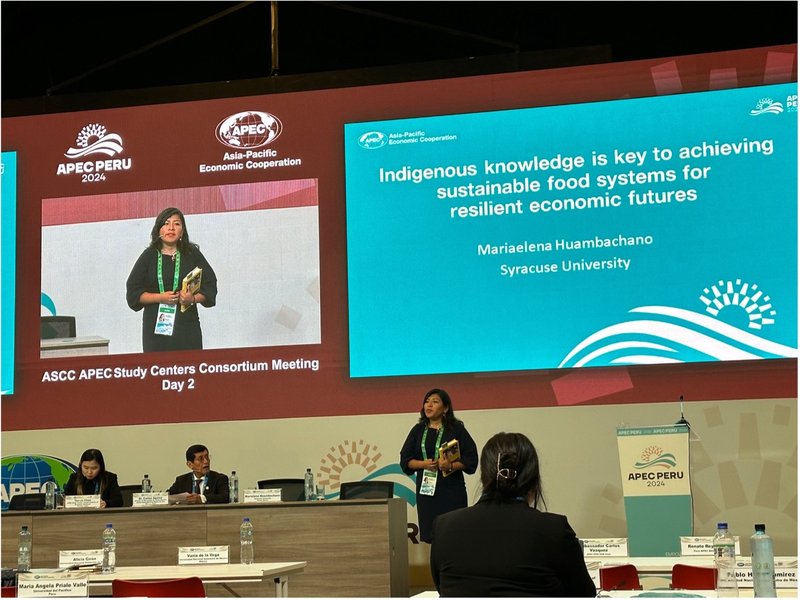
by Laura Wallis
Assistant professor Mariaelena Huambachano is conducting ethnographic research in both Peru and the U.S. for her second book on the topic, funded in part by an NEH Summer Stipend.
Hunger and food insecurity are significant problems worldwide, despite the United Nations’ Zero Hunger by 2030 goal. Just six years until that target, trends suggest that progress is not being made, according to the 2024 State of Food Security and Nutrition in the World report. Food insecurity has many complex causal factors, including access to affordable healthy foods; urban expansion encroaching on farmland; and industrialization that has led to an increased dependency on highly processed foods, among others.
Yet in the face of a rapidly changing world dominated by industrialized food systems, some sustainable food practices, rooted in reverence for nature and the healing power of food, have endured and are even flourishing. This is thanks to the dedicated efforts of Indigenous women, who are the guardians of these invaluable traditions. Can such methods inform changes in food systems to address food insecurity on a wide scale? College of Arts and Sciences Professor Mariaelena Huambachano, a native Peruvian Indigenous scholar with strong cultural ties to Aotearoa New Zealand, will explore the question in her latest book project, “Seeding Hope: Indigenous Women’s Roles in Transforming Food Systems.”

Exploring Long-Held Traditions
Huambachano, whose academic work focuses on environmental humanities and Native American and Indigenous Studies, was granted a highly competitive 2024 National Endowment for the Humanities (NEH) Summer Stipend, the first conferred upon an A&S faculty member since 2017. The award funded a two-month trip to Cusco, Peru, to study the Quechua women at the center of Peru’s food sovereignty movement. The project, which will also focus on the Onondaga women of the U.S., builds upon a decade of previous research and her first book, “Recovering our Ancestral Foodways: Indigenous Traditions as a Recipe for Living Well,” (The University of California Press; August 2024).
On that earlier research, Huambachano noted, “I found that while the negative cultural, social and environmental impacts of our food system are widely acknowledged, the multiple and persisting Indigenous food systems that co-exist within this global food order are less known.” Her ongoing work is devoted to exploring such Indigenous food systems and centering the roles of Indigenous women through oral histories, food dialogues and talking circles.
The hope is not only to shed light on these Indigenous women-led systems but ultimately to “scale up [their] knowledge about and methods of sustainable food systems, linking farmers, seed keepers, activists, academics, and allies at the local and international level in transnational advocacy networks to enhance social, environmental and health wellbeing outcomes.”
Advising Policymakers, NGOs and World Leaders
Huambachano, who joined Syracuse in 2021 to help build the Center for Global Indigenous Cultures and Environmental Justice, is often called upon to share her expertise around the globe. For example, in November 2024, Huambachano will take part in the “Native American and Food Traditions” panel hosted at UC San Diego. Last summer, in addition to conducting her research, she also traveled to and spoke at numerous forums in Europe, Asia and the Americas on the issues surrounding sustainable food systems.

Huambachano (center, in pink dress) at the UNESCO Indigenous and Local Knowledge Experts workshop in Paris, France.
In June, she took part in a workshop for UNESCO Indigenous and Local Knowledge Experts in Paris, France, the inaugural event for an Intergovernmental Science-Policy Platform on Biodiversity and Ecosystem Services task force for which she was nominated to a four-year term last November. She was also an invited speaker at workshops on Indigenous food sovereignty and diverse knowledge systems at Edinburgh’s University of St. Andrews, and the University of Leipzig in Hannover, Germany, in early summer. In July she served on a panel of experts on global food systems at an event hosted by The Canadian Institute for Advanced Research on the future of food, in Toronto.

Huambachano presenting at the Asia-Pacific Economic Cooperation Forum in Lima, Peru.
Other UNESCO and United Nations Development Program events where she presented and gave talks included the National Ecosystem Assessment (NEA) Initiative Global Workshop and the Indigenous Local Knowledge Authors’ Workshop in Bangkok (July); the Asia-Pacific Economic Cooperation Forum in Lima, Peru (August); and the NEA Initiative/ Biodiversity and Ecosystem Services Network Global Workshop—a hybrid event with participants from 14 country teams as well as policymakers and other stakeholders—in Cambridge, UK (September).
